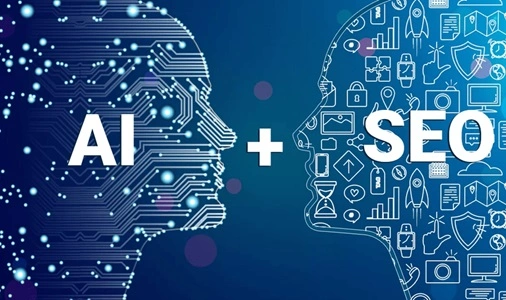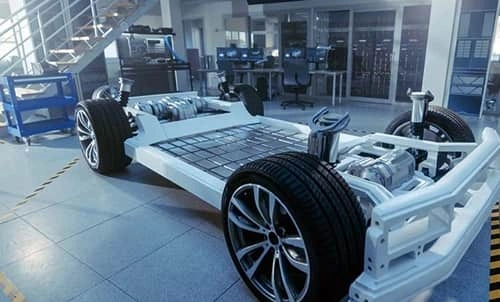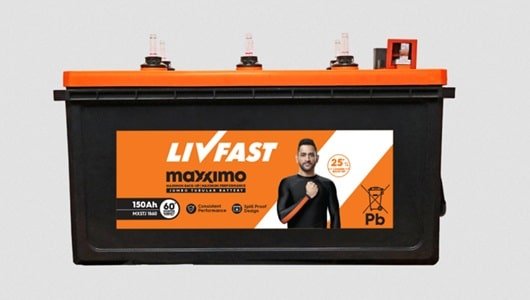SEO. It doesn’t matter that someone across the globe is searching your company with inquiries about what’s offered in your products and services SEO allows you to obtain that organic traffic to place your online content exactly where it’s intended. However, with ever-changing algorithms of search engine results, many companies do not have the time to figure it out on their own, which creates a necessity for special implementations.
A Headless CMS implementation with an AI SEO solution provides a game-changing, passive, collaborative approach to transforming content for SEO usability, ranking adjustments, and user interaction. AI-Driven SEO within a Headless CMS allows businesses to analyze search trends, adjust metadata, and appropriately categorize and organize content while relamping search results based on intention. This article explores how implementing AI-SEO enhancements within a Headless CMS transforms content strategies for better search performance.
AI-Driven Keyword Optimization for Higher Rankings

Yet because keyword research is the foundation of all things SEO, it’s easy to become a bit lazy after all, you can’t always find every opportunity for potential there’s an error factor. That’s why AI integrations with a Headless CMS can suggest keywords automatically based on trending topics in search, keywords relevant to competing articles, and other relevant, time-sensitive information.
Headless CMS for enterprise flexibility ensures that businesses can seamlessly integrate AI-driven SEO strategies across multiple digital touchpoints. Storyblok is a prime example of a headless CMS that supports this kind of enterprise-level flexibility. An e-commerce site, for example, can have AI assess which product-based keywords are most searched and organically insert them into product descriptions, blog posts, and even meta descriptions. The AI tracks SERPs and CTRs over time until it figures out the optimal placement for keywords so that the content stays fresh with SEO regulations. Projects like this help companies stay ranked on page one for relevant searches and increase engagement.
Enhancing Metadata and Schema Markup with AI
Metadata is what search engines look for to evaluate and score content. Thanks to AI-driven SEO in a Headless CMS, title tags, meta descriptions, and image alt text are created on their own, structured according to SEO-compliant needs. This basically means it’s done hierarchically for the search engines. For instance, a news publisher can depend on AI-created meta tagging efforts to create compelling titles and descriptions that improve CTR from organic search. In addition, AI enhances schema efforts as well since it meta tags content for rich snippets, voice searches, and other sponsored snippets that provide brands further visibility on search engine results pages (SERPs). This type of automation reduces the need for SEO adjustments that would have to be done manually while ensuring that rankings are compliant with structured data.
Automating Content Optimization for Search Intent
Understanding what users want and their reasoning behind it guarantees that the right content will be delivered every time. A Headless CMS with AI SEO understands user intent from search patterns, actions, and past activities content is created and delivered automatically to the intended viewer. For example, an SEO content agency might generate SEO-driven content via SEO-driven intent. If someone is seeking recommendations on where to go, ticket prices, or how to get from point A to point B, a travel agency on the web can adjust its content accordingly. These AI-powered programs can determine informational intent, transactional intent, and navigational intent and go from there, giving companies the power to develop a content strategy. Intent-based SEO, in addition to keyword-based SEO, allows brands to generate a better ROI from engagement, decreased bounce rates, and ultimately, project success of any SEO assignment.
Improving Internal Linking and Content Structure
SEO also involves internal linking, which enables search engines to comprehend a site’s hierarchy while simultaneously making navigation easy for the user. An AI-equipped Headless CMS will examine the content and assess the pre-existing connections between pieces of content, automatically proposing suitable internal linking possibilities. For example, a SaaS company that blogs about digital transformation can utilize AI to generate hyperlinks to other similar blog posts, giving suggestions and pathways and keeping them on the page longer. An easy, seamless, fluid web of interconnectivity puts power in the hands of companies to increase dwell time and decrease bounce rate, which are important SEO considerations, while boosting link equity but these all factor into better search placement as well. Furthermore, AI analyzes performance, changing over time based on what’s best.
AI-Powered Content Personalization for SEO
Better content engagement means users are interacting with content more, which is good for SEO. A Headless CMS comes equipped with AI-driven personalization solutions that take stock of where users are and what they’re doing and, based on the past, adjust in the moment to what they either like or don’t like. For instance, an online national retailer will have personalized products in its virtual shopping cart due to previously viewed items, improving UX and SEO. Thus, AI enables the same content to be appropriately optimized across different demographics for higher transactions and successful SEO. The ability to automate the process gives such control to businesses that can offer precise content for demographic needs without lifting a finger manually.
Real-Time SEO Monitoring and Performance Insights
SEO is an ongoing process. Thus, with Headless CMS’s smart SEO, all aspects from keyword usage to loading times to dwell times are monitored in real time and provide companies the insight to change content strategies for improved search performance. Take, for example, a financial services company that employs AI-driven analytics to determine the SEO success of its how-to finance articles and blogs. If an article even months later drops in traffic 3 months in AI can suggest a change based on the new trending keywords or it can suggest more clarity and mobile friendliness. This allows companies to beat the changes years later and have successful SEO for months and years down the line.
Optimizing Voice Search and AI Assistants
As voice search becomes more prevalent, a shift in content requirements will be inevitable based on vocalized requests. A.I. Driven SEO in a Headless CMS will assess how people search and adjust content to fit how they may, instead, ask a question from a vocal standpoint.
For example, a food blog can enhance its content through voice search optimized recipes, proper formatting, natural language, and Q&A features. AI helps generate long-tail search phrases and conversational keywords so that the gendered voice AI foodies Alexa, Siri, Google can easily find the content. Companies that offer connections through these avenues are more likely to be discovered through voice-generated requests and bring their newfound visibility to yet another audience through AI.
Future-Proofing SEO Strategies with AI and Machine Learning
SEO is anticipatory. It does not matter whether it is new technology or new search engines; there will be a need for SEO into the future but with SEO automation and the capacity to analyze data in real-time, organizations can be sure that their existing content is on the right track.
For example, if user experience becomes the next factor driving SERP ranking, a Headless CMS separate on the front and back end can use AI to evaluate emerging data in relation to Core Web Vitals, mobile-first indexing, or even new information brought to light by up-and-coming or trending AI use in search. As for AI-driven SEO, organizations need not worry about their content being obsolete, as it can automatically transform into what it needs to be for whatever the next emerging trend is.
Enhancing Mobile SEO with AI-Driven Headless CMS
As more and more users browse on their phones, an AI Headless CMS ensures your content is mobile SEO optimized, one of the essential functionalities that maintain your company’s favor with search engine platforms. A Headless CMS caters to mobile-specific content; everything from dimensions to loading speed and interaction opportunities are all automated tweaks.
For example, an ecommerce apparel shop might benefit from AI-powered improvements when it comes to its clothing product pages loading seeming to load within an instant and appropriately adjusted meta data for mobile-first indexing.
AI recognizes how users interact with limited screen real estate and therefore adjusts content placement, image sizing, and AMPs (Accelerated Mobile Pages) for better load speed. Thus, businesses that leverage AI-powered solutions for mobile SEO will enhance their chances of being discovered in mobile SERPs and creating an effortless experience for anyone searching on their devices.
Automating Technical SEO Improvements with AI
Technical SEO is essential for allowing search engines to efficiently and effectively crawl, index, and rank your content. Following the rules of technical SEO increases the chances of perfect positioning, perfect functionality, and thus, organic traffic. Yet trying to fix the issues of bad technical SEO broken links, poor site hierarchies, or missing XML sitemaps through human intervention becomes complicated, expensive, and time extensive, especially on an enterprise scale. The advantages of AI within a Headless CMS for handling complicated technical SEO changes happen automatically via AI-powered agents. For example, AI-powered agents can identify broken links
typically something that operates as a poor user experience on the front end. Yet by identifying them in real-time, AI can correct a dead end before users see it or worse, before Google sees the broken link and considers it an issue worthy of punishing the site. Furthermore, AI can create a sound site architecture with proper page hierarchy and menu options so search engines can more easily discover and index relevant pages. Finally, AI can create an XML sitemap for pages that have new and old content to help search engine crawlers find what they need to more effectively evaluate your site.
For instance, a massive enterprise SaaS company with countless digital assets may benefit from the power of AI automated technology tracking potential SEO pitfalls and fixing them before they impede web positioning efforts. Duplication of content, missing meta descriptions, longer than appropriate load times, and misapplied canonical tags can prevent a site from ranking successfully if not corrected, however, with AI, the site is continually analyzed and anything out of place is noted in real-time with recommendations on how to fix it—and it could be as simple as correcting a meta description.
When done in real-time, it’s much more manageable to ensure that SEO pitfalls do not negatively impact results and overall UX. Moreover, the capability of AI within a Headless CMS to monitor and adapt on the go ensures that your website remains compliant with ever-evolving SEO needs set forth by search engines. Be it revised SEO needs or new best practice standards, AI can automatically figure out what has been altered and what it needs to be compliant and it doesn’t rely upon the human gaze. Thus, the need for human testing and adjustments is diminished, easing the process of technical SEO and enabling human assets to turn their attention to other projects for more proactive efforts. Ultimately, the integration of AI applications with a Headless CMS vastly enhances technical SEO solutions for assured business control over ongoing maintenance and optimization of site health, search engine ranking, and enterprise-grade UX.
Leveraging AI for Local SEO and Geo-Targeted Content
Local SEO matters because consumers expect to be able to search for businesses based on location. AI-driven headless CMS solutions enable businesses to effortlessly alter content for multiple locations in real time, so location-based SERPs are always current. AI also offers effortless local search. For example, a franchise restaurant can rely on automatic changes to business listings, local keywords, and reviews of all its locations through AI. In addition, geo-targeted AI allows a business to alter a landing page based on where someone is searching so that the correct special, hours of operation, and location-based details show up for the query. Therefore, integrating AI with local SEO efforts makes for higher ranking and a more effective connection to surrounding consumer bases.
Conclusion
AI-driven SEO in a Headless CMS transforms the relationship between search ranking power, automated content structuring, and improved user engagement. Through AI-based keyword research, automated meta tagging, understanding of search intent, and niche content creation for various demographics, organizations could create an ultra-nuanced web presence that meets 21st-century demands of all search engines. But wait, there’s more regarding the competitive advantage. AI Powered Headless CMSs will keep brands on top with automated SEO auditing, voice search integration, and predictive analytics. As search engines transform, those using an AI Powered SEO strategy will remain relevant and ranked online, experiencing long-term organic growth across an increasingly complex digital landscape.
Santosh Kumar is a Professional SEO and Blogger, With the help of this blog he is trying to share top 10 lists, facts, entertainment news from India and all around the world.





